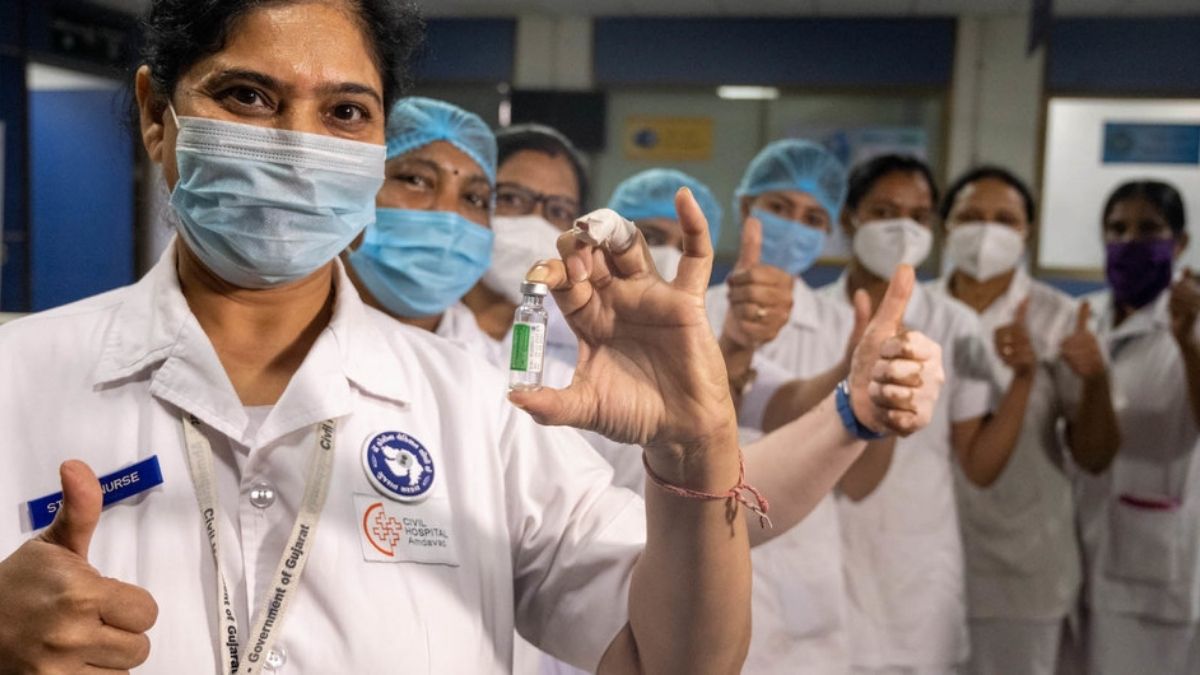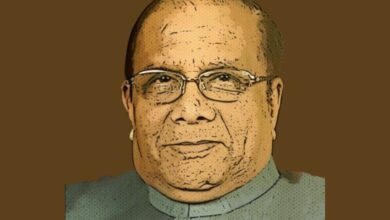Why India Needs A Uniform And Centralized Procurement Of Vaccines: The Struggle With Covid-19

As India continues to struggle with the massive figures in COVID-19 deaths, vaccination remains the only hope for overcoming the deadly COVID-19 pandemic, as several scientists across the globe have dismantled the rumors of herd immunity being a potent option in eradicating the virus.
As mentioned in our earlier published article- Can Herd Immunity Really End The COVID-19 Pandemic? You Were Thinking It All Wrong!, we have clearly mentioned that herd immunity is the phenomenon that stops the virus from emerging hence and forth. Please don’t mistake it for some magical number or science that can help us to overcome the pandemic. Now here you must be having several questions in your mind like, “Do we have to live in this pandemic forever?”, “If not herd immunity, then how can we overcome the COVID-19 pandemic?”
Firstly, don’t worry! You won’t live in the COVID-19 pandemic forever. Eventually, a day will come when you no longer have to wear the masks. Secondly, as mentioned above, herd immunity will definitely eradicate the pandemic, but vaccination will. If we vaccinate all the people with potent COVID-19 vaccines, with a condition that the vaccines keep working with the same efficiency against the mutant variants, then we can surely get over this pandemic.

Vaccination is going in a full-fledged manner across the globe except for India. Tangled in dirty politics, with a hint of the government’s negligence, the vaccination drive in India is entirely ruined. Various states are complaining about not getting a sufficient supply of vaccines. But does our government care?
High time! Uniform vaccination should be prioritized in India
It is high time now! The government of India needs to prioritize uniform vaccination for all. Free vaccines should be procured for everyone. But the GOI has set different price rates for the same vaccine. This is nothing but an act of dirty politics played by the government to harass its citizens. Even if one person is left unvaccinated, it plays a potential threat to infect others. The vaccines produced across the globe have shown encouraging results with positive effects on the economy, citizens and reducing mortality rates.
Ideally, the ‘public good’ shouldn’t be priced for the public. It should cost no amount of money as it is meant for the public. How can the government levy taxes on vaccines that are categorized as a public good? All the citizens must be vaccinated to protect against further infections in the nation. If we leave the vaccination on markets or states, the poor will suffer the most, as many have lost their jobs in the pandemic.
For health workers and essential services workers, and then> 60-year-olds and> 45-year-olds with comorbidities, GOI receives immunizations and provides districts. However, GOI has changed its mid-broadcast policy (according to the April 24 proclamation, “Free Price and the National Influenza Vaccine Strategy”). GOI purchased vaccines for the first two groups.
Then at the age of 18-45 (about 600 million people), from May 1, the government allowed provinces and private buyers to negotiate a price, and find out for themselves. Instead of leaving the vaccination procurement duty on the states, the center should come forward and take equal participation in it. If the states keep procuring the vaccines individually, then price competition will begin which will cause high rates of these vaccines. Hence, the economically weaker sections would not be able to afford the vaccines at such a high rate.

The central government should carry the vaccine procurement. Also, inter-state inequality regarding the supply of vaccines should be discouraged, whether the state is under BJP or not. It is pretty evident that 8 states account for 75% of the vaccines. Some states have announced free vaccines for all adults. States with less population can take is this measure, but large states with enormous populations cannot afford this step. This will lead to inter-state inequity hence the central government should procure the vaccines.
The country may be divided by the chains of private hospitals and employers of large companies, as these will have greater pay capacity. In the meantime, manufacturers of vaccine companies will choose to supply private consumers, who will be paying higher prices. This could create barriers to the provision of the national government. It is unreasonable for the Institute to determine that 50% of vaccines that the Agency will not purchase, will be equitably distributed between countries and private consumers. Whose needs are greater than those of an institution or a private buyer? How did the institution get to such an arrangement?

Vaccine procurement: State Vs. Centre
All the states across India are procuring the vaccines independently, which means an independent logistics arrangement for the vaccines, raising costs, losing time for the vaccines to reach them. The COVID-19 pandemic isn’t something that keeps rising every year, its once in a decade pandemic. It must be eradicated from the country as soon as possible because it is not only causing financial loss, but also people are dying. Hence, the government should not make any delays in the ordering and distribution of the vaccines.
The government of India has already caused much delay in ordering the vaccine from the US and Europe, hence they are taking a long time to deliver it. When the government should have prepared for the second wave, they simply avoided all the chances of it stating that India has overcome the COVID-19 pandemic. Even now, the government is stating that they have overcome the second wave of COVID, but in reality, just overcoming the virus is not our goal. We have lost to the virus as thousands of people lost their lives.

GOI already offers, under the Global Immunization Program (since 1977), free vaccinations for 12 preventable vaccines (and three countries for three diseases). UIP is fully funded by GOI. At the state level, GOI funds cold waste management and vaccine and waste disposal safety.
Similarly, the National Vaccine Policy 2011 has the same purpose (including the transfer of technology from international companies to make products, the use of Indian patent law to allow compulsory licenses in special circumstances). It is clear that the change in GOI policy in 2021 concerning the COVID-19 vaccine – during a national emergency – violates the GOI National Immunization Policy 2011. It must be lifted.
The central government should not leave everything on the shoulders of the state government and subject the global pandemic as a state subject. If without the concern of states the center can impose the nationwide lockdown, then they can surely procure the vaccines on the behalf of the states as well. All the developed nations like the USA, Canada, European countries have adopted a centralized model for the procurement of vaccines.
This is ideal and the only model of vaccine procurement that the countries should follow as it ensures a uniform distribution of vaccines. No country other than India has adopted this “state-wise” procurement of vaccines.




